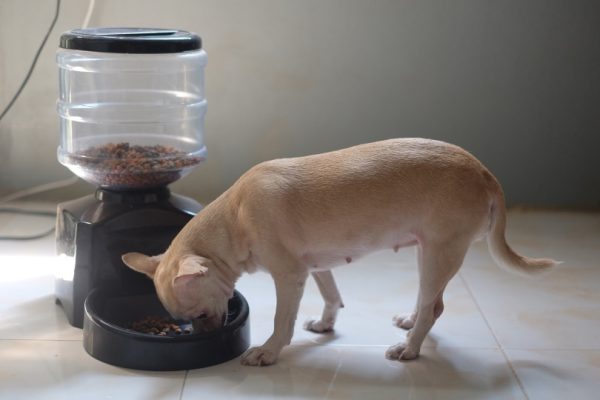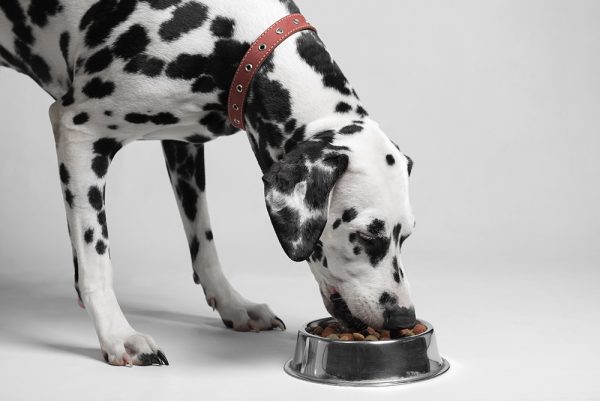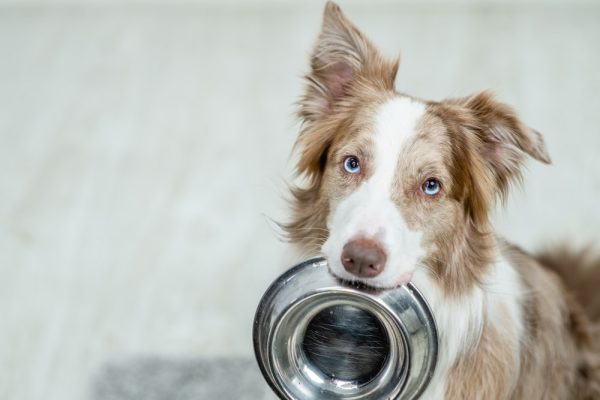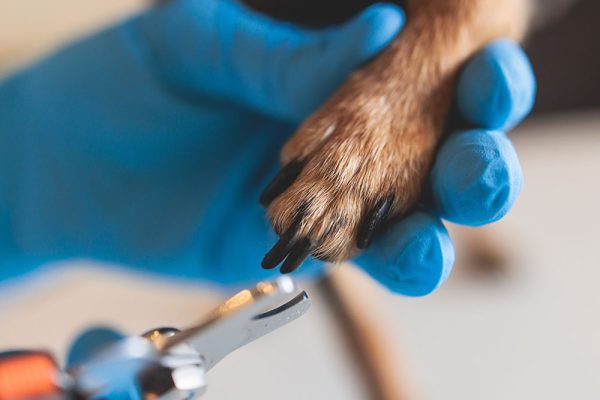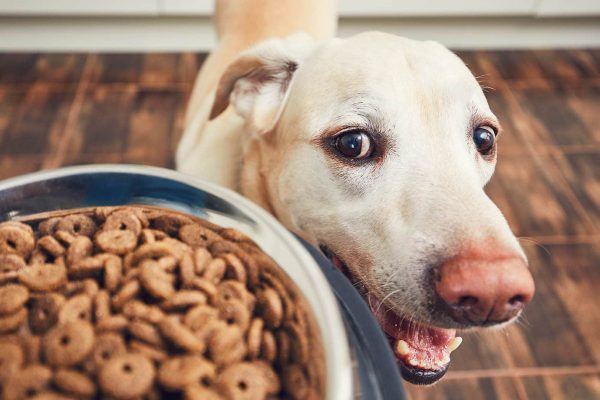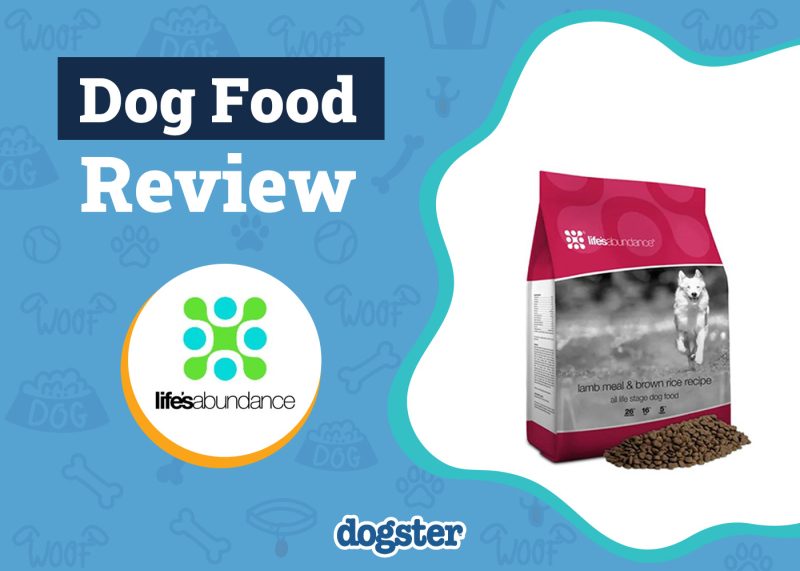Sourdough bread is a popular type of bread that many people enjoy. During the pandemic, many people picked up the hobby of breadmaking while they were quarantining at home. If you’re one of those people, then you probably have a sourdough starter in your fridge and a loaf or two of bread every week. If you’ve noticed your pup hanging around when you’re making or eating that sourdough bread, you’ve probably wondered if it’s okay to give the slightly sour bread to them.
Is sourdough safe for dogs? In small amounts, sourdough bread is safe for your dog to eat. However, most vets recommend avoiding it as a regular treat for your pup.

Is Sourdough Bread Safe for Dogs?
Sourdough contains yeast, salt, and wheat flour, all of which are unnecessary for your dog to eat, so it is generally an unsafe food to give your dog.
If your dog eats a bite of sourdough bread or even a full slice, there is little cause for concern. Keep an eye on them for abdominal discomfort, bloating, and general malaise. If you think your dog is experiencing notable symptoms after consuming the bread, then it’s a good idea to see your vet just to be safe, but this is unlikely to occur after a small amount of cooked sourdough bread consumption. Some dogs may suffer from wheat allergies or intolerances, in which case smaller amounts can cause your canine issues, and bread treats should be avoided altogether.
Sourdough bread is low in the nutrients your dog needs and is a relatively high-calorie treat. There are far better treat options available for your dog, including dog-safe fruits and veggies and small bites of unseasoned, cooked lean meats. Dogs that receive bread as a regular treat may experience abdominal discomfort, as well as weight gain.
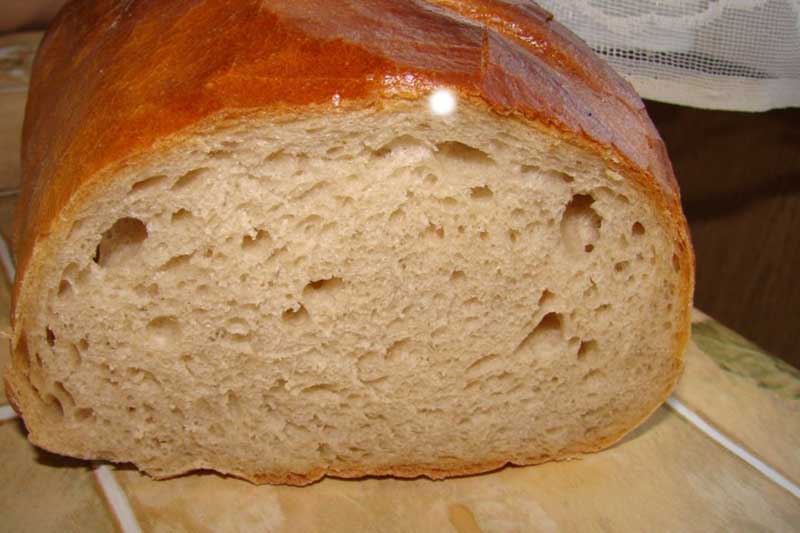
Is Sourdough Bread Dough Safe for Dogs?
No type of bread dough is safe for your dog to consume, including sourdough dough. Bread dough contains the same ingredients as cooked bread, but they are not fully cooked. When ingested, the dough expands in the warmth of your dog’s stomach, leading to potentially serious bloating and discomfort.
Believe it or not, as yeast works to make your bread rise, it produces alcohol, which is part of the fermentation process. Alcohol is rapidly absorbed into the dog’s bloodstream causing alcohol poisoning in high enough amounts. The signs of alcohol poisoning include vomiting, staggering, weakness, bloat, and can even progress to seizures and respiratory failure. If your dog has eaten unbaked bread dough, contact your veterinarian straight away.
Also, the CDC has pushed in the last few years to discourage people from eating raw dough of any kind. Raw flour can contain dangerous bacteria, which can lead to serious illness for both you and your dog if consumed. Flour should only be considered safe to consume after it has been cooked. If you’re planning to keep on eating raw cookie dough, then you are likely aware of the risks you’re choosing to take. As a pet owner, it is your responsibility to make safe decisions for your dog, including not offering them any kind of raw flour or dough.
If you need to speak with a vet but can't get to one, head over to PangoVet. It's our online service where you can talk to a vet online and get the advice you need for your pet — all at an affordable price!

In Conclusion
Sourdough bread, once cooked, can be safe for dogs in small quantities, although it may lead to stomach upset and bloating. If your dog eats a large amount of bread, like an entire loaf, then there is a risk of bloat, which is a medical emergency, so keep an eye out for symptoms like notable abdominal swelling, nausea, abdominal pain, and lethargy.
Under no circumstances should your dog be allowed to eat any kind of raw dough, sourdough bread dough included. Raw dough can be dangerous for multiple reasons, including active yeast, the presence of alcohol, and the risks associated with consuming raw or undercooked flour.
See Also:


